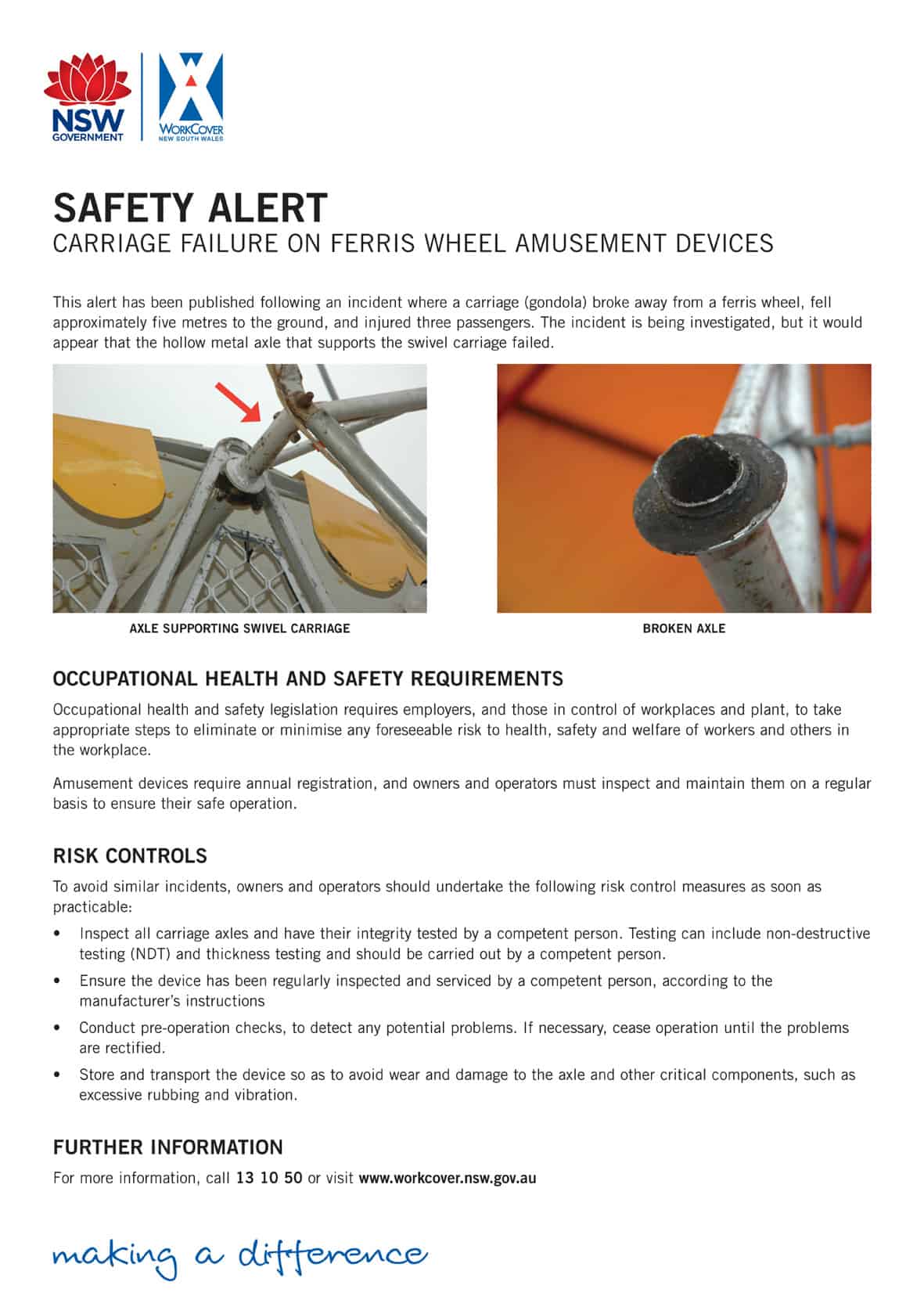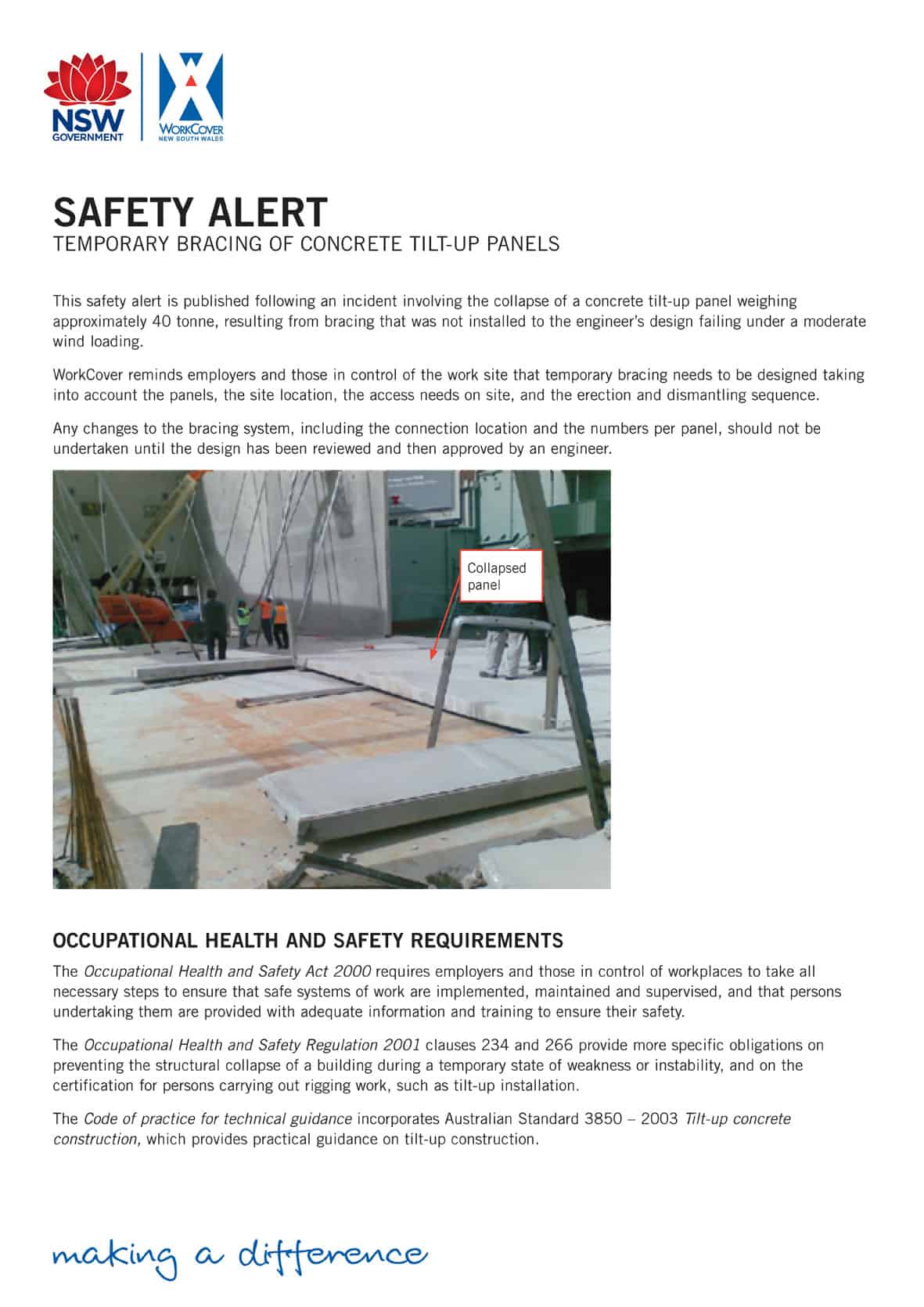Workcover New South Wales issued three safety alerts in early April 2010 that deserve attention.
- Carriage failure on ferris wheel amusement devices
- Importation of tremolite asbestos natural stone tiles
- Safety procedures for temporary bracing of concrete tilt-up panels
New South Wales seemed to have a spate of faults on amusement rides over the last few months – Ferris wheel, rollercoaster (with video). Continue reading “Three Australian Safety Alerts – asbestos, rollercoaster and tilt-up construction”




